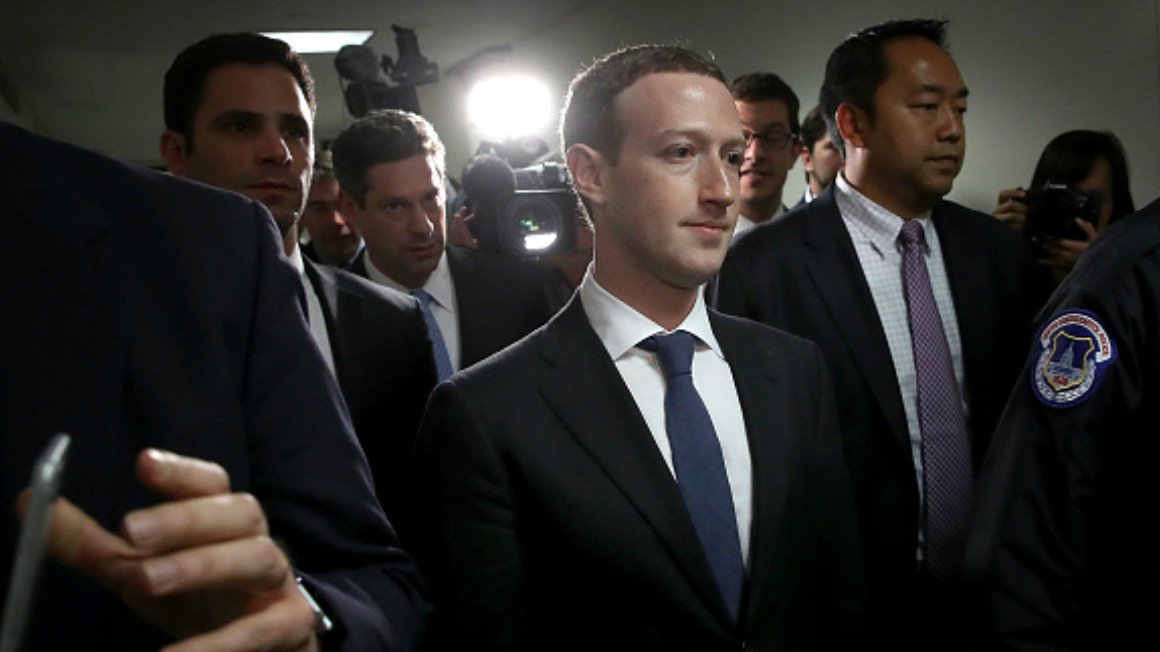[ad_1]
This week, Facebook CEO Mark Zuckerberg will expose his underbelly to Congress…twice.
Today, he will stand before the Senate and tomorrow the House to answer questions regarding the admission that Facebook participated in the third-party harvest of the personal data of nearly 71 million Americans who use the social media platform. This is a transgression that the Black community cannot afford to ignore.
Why?
Black people are prolific when it comes to social media. According to Pew Research, 70 percent of Black people are on Facebook. Think about that: seven in 10 of ALL Black-American people are posting on walls, updating profile pics and liking and unfriending all day long. Yet, there hasn’t been a peep out of any of the tech groupies and gurus about the significant impact of Facebook’s actions on the Black community.
The reality is that Cambridge Analytica and Facebook scandalously made American consumers’ private data vulnerable by sharing it and the data of their friends without consent or even notifying the users, which is a violation of their privacy.
A “breach” implies an accident; this was a harvest of valuable information that will be used to influence everything from Black people’s participation in elections to spending habits. This isn’t just a wake-up call—it’s an alarm that’s blaring at 10. It’s time that Black folks wake up and stop giving companies a pass for exploiting us for our personal data.
The problem…
The details of the allegations read like a conspiracy novel. Up to 87 million Facebook users’ privacy and private information – possibly even including Facebook chats – may have been swept up simply because of loose policies about the use of third-party apps on the site. And all of this happened without the knowledge or consent of the users themselves. The policy has since changed, but it is too little too late to clap back after your private data has been used to manipulate you. In other words, hindsight is 20/20.
READ MORE: Outrage after Black teen sentenced to 65 years in prison after Alabama cop kills his best friend
I have a friend who is a nationally-recognized lawyer. She is always bragging about how private her data is on Facebook, but no matter how careful a Facebook user tries to be, if you have a Facebook friend who was not as cautious, you likely both had your data taken during the breach – whether it was protected and private or not. Many people download third-party apps and respond to questions, polls, or other methods of drawing you in, but all of these ploys are really just ways to scour your data for the unique information that will allow them to track YOU!
The solution…
Now that people know what’s happening, it is no wonder there is public outrage which takes us to today and these Congressional hearings, but what we really need is Congressional action. Social media companies are not in the business of protecting your privacy. We need an Internet Consumer Bill of Rights to promote one standard of privacy and one set of rules that applies to all companies in the internet ecosystem and applies no matter how consumers access the internet. The basic idea behind this has been around for some time and former President Barack Obama actually proposed a similar protection plan in 2012.
Why we can’t wait…
Whether you are at home on a wired connection, at a library, Starbucks or accessing the internet wirelessly on a smartphone, the same protections should apply. Whether you are writing an email, taking an online course, or using services from Facebook, Google or Twitter, the same protections should apply. People unwillingly give away their privacy because only a few of us even read the user agreements that could potentially cast our data into the hands of the unscrupulous. Bottom line is we should know what we are agreeing to share.
READ MORE: So where can we get all the new Black Panther toys?
Congress needs to do something NOW. The solution is a federal standard of consumer protection that applies to everybody all the time. Beyond privacy, the Internet Bill of Rights would also guarantee openness, freedom to access the legitimate content of one’s choice and protections against online censorship or downgrading of service.
You can bet that however this problem impacts America, the privacy breaches will lead to predatory practices in communities of color. We cannot delegate our privacy to others. We, the people, need to demand that our representatives, regardless of their allegiance to any party, step up and protect our internet privacy regardless of the platform.
If every Black person on Facebook spoke with one voice, we can make this a reality.
Kim Keenan is the Co-Chairwoman of the DC-based Internet Innovation Alliance (IIA), a coalition of business and non-profit organizations aimed to ensure that every American has access to broadband Internet.
[ad_2]
Source link

